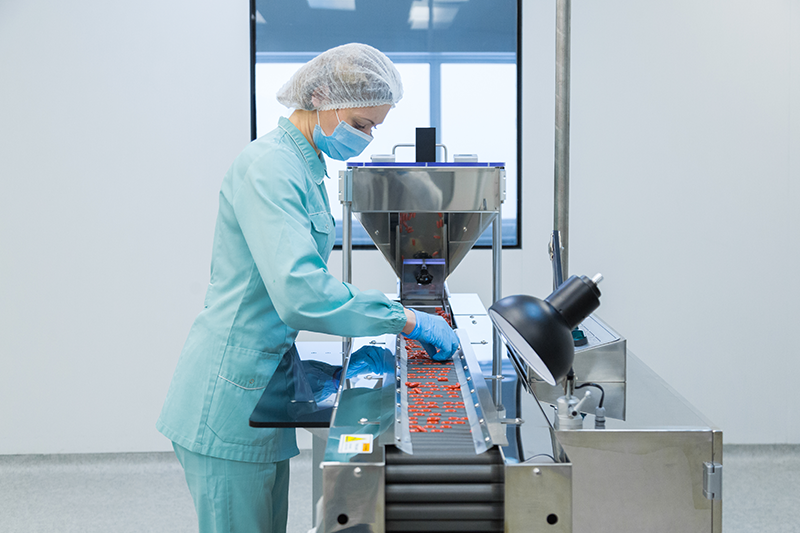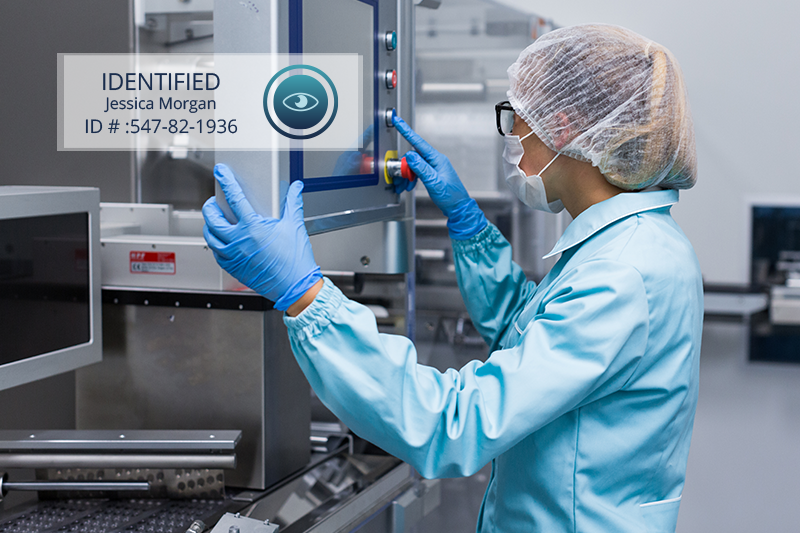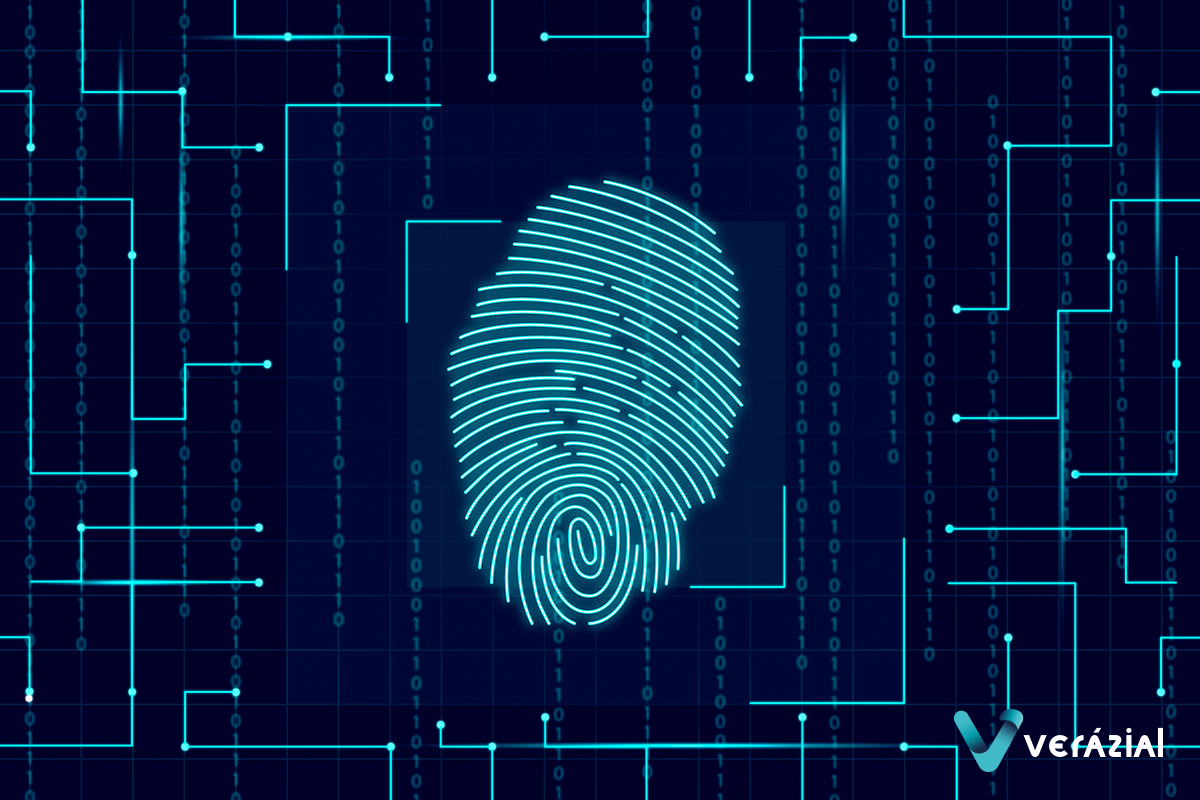The Role of Biometric Technologies in the Pharma 4.0 Model: Security and Regulatory Compliance
In the pharmaceutical industry, the signature of the responsible individual is essential for compliance with (GMP) regulations. However, traditional methods may pose security risks. In a Pharma 4.0 environment, biometrics provides a secure solution, ensuring data integrity and enhancing traceability for more precise regulatory compliance.
The pharmaceutical industry is undergoing a transformation driven by digitalization and automation, shaping the Pharma 4.0 paradigm. This new approach aims to enhance efficiency, security, and traceability by integrating innovative technologies. Within this framework, biometrics plays a crucial role in ensuring information security, data integrity, and process traceability within pharmaceutical processes.
Pharma 4.0 is the adaptation of Industry 4.0 to pharmaceutical processes, incorporating Artificial Intelligence , Big Data, Automation, and the Internet of Things (IoT). These technologies optimize drug research, production, and distribution, addressing key market challenges such as personalized treatments, research transparency, and product quality and safety assurance.
The digitization of pharmaceutical processes demands efficient data management, ensuring its real-time availability and integrity. This requires the implementation of advanced systems capable of collecting, storing, and analyzing data without compromising accuracy or authenticity.
In this context, biometrics plays a pivotal role in safeguarding information and ensuring operational traceability. By granting system access only to authorized personnel, it significantly reduces risks associated with unauthorized entry and data manipulation. Additionally, biometrics streamlines audit processes and regulatory controls, ensuring compliance with stringent regulations such as Good Manufacturing Practices (GMP), overseen by agencies like the EMA (European Medicines Agency) and the FDA (Food and Drug Administration).
These regulatory bodies explicitly mandate that records and/or signatures be unique and unequivocally linked to each user, ensuring the highest standards of security, reliability, and regulatory compliance.

Biometrics in Pharmaceutical Processes: Ensuring Security, Integrity, and Traceability
Biometric identification and authentication enhance security in pharmaceutical processes by preventing unauthorized access to systems and equipment while safeguarding data integrity throughout manufacturing. Its application spans the entire pharmaceutical value chain, from drug research and development to production and distribution.
One of the greatest challenges in pharmaceutical manufacturing is ensuring the accuracy and reliability of recorded data as any alteration can compromise product quality and patient safety. Implementing biometric systems—such as iris or fingerprint recognition—ensures that each record in computerized systems is unequivocally linked to the individual performing the activity, fully complying with the Attributable principle of the ALCOA+ framework. This eliminates the risks of impersonation and data tampering.
Furthermore, the Legible principle of ALCOA+ mandates that all data and metadata remain understandable and verifiable over time. Biometric systems ensure that Audit Trail records contain precise and traceable information, including who performed an action, when, and under what conditions. This not only enhances traceability but also ensures the generation of reliable evidence for regulatory audits.
For more insights, we invite you to read our article: Employees’ identification in the pharmaceutical industry according ALCOA+.
Key Benefits of Biometrics in Pharma 4.0
- Secure and Controlled Access: Biometrics ensures that only authorized personnel can access critical systems, significantly reducing the risk of unauthorized access and data breaches, thereby strengthening security across pharmaceutical operations.
- Eliminating the Use of Passwords: By replacing passwords, biometric authentication reduces the risk of fraudulent access and human error in credential management, improving security at every level of the organization.
- Increased Efficiency and Error Reduction: Biometric systems enhance operational efficiency by minimizing fraud risks and data manipulation, ensuring the accuracy of recorded information while optimizing system performance.
- Regulatory compliance: Biometrics supports compliance with stringent regulations, such as those set by the FDA, by maintaining an accurate, auditable, and secure record of all system interactions. This strengthens data integrity and contributes to a fully digitized, compliant ecosystem throughout the pharmaceutical supply chain.
The Pharma 4.0 model is revolutionizing the pharmaceutical industry, driving efficiency, quality, and safety. Biometrics is emerging as a strategic tool in this digital transformation, helping companies not only achieve regulatory compliance but also strengthen trust in their products and boost competitiveness in the global market.
Discover how Verázial ID Pharma can enhance security and regulatory compliance in your pharmaceutical company within the Pharma 4.0 framework.
Contact us for a demo and/or a customized analysis.
References
- Mid-range shot of scientists in a laboratory [Freepik]
The Role of Biometric Technologies in the Pharma 4.0 Model: Security and Regulatory Compliance
In the pharmaceutical industry, the signature of the responsible individual is essential for compliance with (GMP) regulations. However, traditional methods may pose security risks. In a Pharma 4.0 environment, biometrics provides a secure solution, ensuring data integrity and enhancing traceability for more precise regulatory compliance.
The pharmaceutical industry is undergoing a transformation driven by digitalization and automation, shaping the Pharma 4.0 paradigm. This new approach aims to enhance efficiency, security, and traceability by integrating innovative technologies. Within this framework, biometrics plays a crucial role in ensuring information security, data integrity, and process traceability within pharmaceutical processes.
Pharma 4.0 is the adaptation of Industry 4.0 to pharmaceutical processes, incorporating Artificial Intelligence , Big Data, Automation, and the Internet of Things (IoT). These technologies optimize drug research, production, and distribution, addressing key market challenges such as personalized treatments, research transparency, and product quality and safety assurance.
The digitization of pharmaceutical processes demands efficient data management, ensuring its real-time availability and integrity. This requires the implementation of advanced systems capable of collecting, storing, and analyzing data without compromising accuracy or authenticity.
In this context, biometrics plays a pivotal role in safeguarding information and ensuring operational traceability. By granting system access only to authorized personnel, it significantly reduces risks associated with unauthorized entry and data manipulation. Additionally, biometrics streamlines audit processes and regulatory controls, ensuring compliance with stringent regulations such as Good Manufacturing Practices (GMP), overseen by agencies like the EMA (European Medicines Agency) and the FDA (Food and Drug Administration).
These regulatory bodies explicitly mandate that records and/or signatures be unique and unequivocally linked to each user, ensuring the highest standards of security, reliability, and regulatory compliance.

Biometrics in Pharmaceutical Processes: Ensuring Security, Integrity, and Traceability
Biometric identification and authentication enhance security in pharmaceutical processes by preventing unauthorized access to systems and equipment while safeguarding data integrity throughout manufacturing. Its application spans the entire pharmaceutical value chain, from drug research and development to production and distribution.
One of the greatest challenges in pharmaceutical manufacturing is ensuring the accuracy and reliability of recorded data as any alteration can compromise product quality and patient safety. Implementing biometric systems—such as iris or fingerprint recognition—ensures that each record in computerized systems is unequivocally linked to the individual performing the activity, fully complying with the Attributable principle of the ALCOA+ framework. This eliminates the risks of impersonation and data tampering.
Furthermore, the Legible principle of ALCOA+ mandates that all data and metadata remain understandable and verifiable over time. Biometric systems ensure that Audit Trail records contain precise and traceable information, including who performed an action, when, and under what conditions. This not only enhances traceability but also ensures the generation of reliable evidence for regulatory audits.
For more insights, we invite you to read our article: Employees’ identification in the pharmaceutical industry according ALCOA+.
Key Benefits of Biometrics in Pharma 4.0
- Secure and Controlled Access: Biometrics ensures that only authorized personnel can access critical systems, significantly reducing the risk of unauthorized access and data breaches, thereby strengthening security across pharmaceutical operations.
- Eliminating the Use of Passwords: By replacing passwords, biometric authentication reduces the risk of fraudulent access and human error in credential management, improving security at every level of the organization.
- Increased Efficiency and Error Reduction: Biometric systems enhance operational efficiency by minimizing fraud risks and data manipulation, ensuring the accuracy of recorded information while optimizing system performance.
- Regulatory compliance: Biometrics supports compliance with stringent regulations, such as those set by the FDA, by maintaining an accurate, auditable, and secure record of all system interactions. This strengthens data integrity and contributes to a fully digitized, compliant ecosystem throughout the pharmaceutical supply chain.
The Pharma 4.0 model is revolutionizing the pharmaceutical industry, driving efficiency, quality, and safety. Biometrics is emerging as a strategic tool in this digital transformation, helping companies not only achieve regulatory compliance but also strengthen trust in their products and boost competitiveness in the global market.
Discover how Verázial ID Pharma can enhance security and regulatory compliance in your pharmaceutical company within the Pharma 4.0 framework.
Contact us for a demo and/or a customized analysis.
References
- Mid-range shot of scientists in a laboratory [Freepik]
The Role of Biometric Technologies in the Pharma 4.0 Model: Security and Regulatory Compliance
In the pharmaceutical industry, the signature of the responsible individual is essential for compliance with (GMP) regulations. However, traditional methods may pose security risks. In a Pharma 4.0 environment, biometrics provides a secure solution, ensuring data integrity and enhancing traceability for more precise regulatory compliance.
The pharmaceutical industry is undergoing a transformation driven by digitalization and automation, shaping the Pharma 4.0 paradigm. This new approach aims to enhance efficiency, security, and traceability by integrating innovative technologies. Within this framework, biometrics plays a crucial role in ensuring information security, data integrity, and process traceability within pharmaceutical processes.
Pharma 4.0 is the adaptation of Industry 4.0 to pharmaceutical processes, incorporating Artificial Intelligence , Big Data, Automation, and the Internet of Things (IoT). These technologies optimize drug research, production, and distribution, addressing key market challenges such as personalized treatments, research transparency, and product quality and safety assurance.
The digitization of pharmaceutical processes demands efficient data management, ensuring its real-time availability and integrity. This requires the implementation of advanced systems capable of collecting, storing, and analyzing data without compromising accuracy or authenticity.
In this context, biometrics plays a pivotal role in safeguarding information and ensuring operational traceability. By granting system access only to authorized personnel, it significantly reduces risks associated with unauthorized entry and data manipulation. Additionally, biometrics streamlines audit processes and regulatory controls, ensuring compliance with stringent regulations such as Good Manufacturing Practices (GMP), overseen by agencies like the EMA (European Medicines Agency) and the FDA (Food and Drug Administration).
These regulatory bodies explicitly mandate that records and/or signatures be unique and unequivocally linked to each user, ensuring the highest standards of security, reliability, and regulatory compliance.

Biometrics in Pharmaceutical Processes: Ensuring Security, Integrity, and Traceability
Biometric identification and authentication enhance security in pharmaceutical processes by preventing unauthorized access to systems and equipment while safeguarding data integrity throughout manufacturing. Its application spans the entire pharmaceutical value chain, from drug research and development to production and distribution.
One of the greatest challenges in pharmaceutical manufacturing is ensuring the accuracy and reliability of recorded data as any alteration can compromise product quality and patient safety. Implementing biometric systems—such as iris or fingerprint recognition—ensures that each record in computerized systems is unequivocally linked to the individual performing the activity, fully complying with the Attributable principle of the ALCOA+ framework. This eliminates the risks of impersonation and data tampering.
Furthermore, the Legible principle of ALCOA+ mandates that all data and metadata remain understandable and verifiable over time. Biometric systems ensure that Audit Trail records contain precise and traceable information, including who performed an action, when, and under what conditions. This not only enhances traceability but also ensures the generation of reliable evidence for regulatory audits.
For more insights, we invite you to read our article: Employees’ identification in the pharmaceutical industry according ALCOA+.
Key Benefits of Biometrics in Pharma 4.0
- Secure and Controlled Access: Biometrics ensures that only authorized personnel can access critical systems, significantly reducing the risk of unauthorized access and data breaches, thereby strengthening security across pharmaceutical operations.
- Eliminating the Use of Passwords: By replacing passwords, biometric authentication reduces the risk of fraudulent access and human error in credential management, improving security at every level of the organization.
- Increased Efficiency and Error Reduction: Biometric systems enhance operational efficiency by minimizing fraud risks and data manipulation, ensuring the accuracy of recorded information while optimizing system performance.
- Regulatory compliance: Biometrics supports compliance with stringent regulations, such as those set by the FDA, by maintaining an accurate, auditable, and secure record of all system interactions. This strengthens data integrity and contributes to a fully digitized, compliant ecosystem throughout the pharmaceutical supply chain.
The Pharma 4.0 model is revolutionizing the pharmaceutical industry, driving efficiency, quality, and safety. Biometrics is emerging as a strategic tool in this digital transformation, helping companies not only achieve regulatory compliance but also strengthen trust in their products and boost competitiveness in the global market.
Discover how Verázial ID Pharma can enhance security and regulatory compliance in your pharmaceutical company within the Pharma 4.0 framework.
Contact us for a demo and/or a customized analysis.
References
- Mid-range shot of scientists in a laboratory [Freepik]
You May Also Like
You May Also Like





